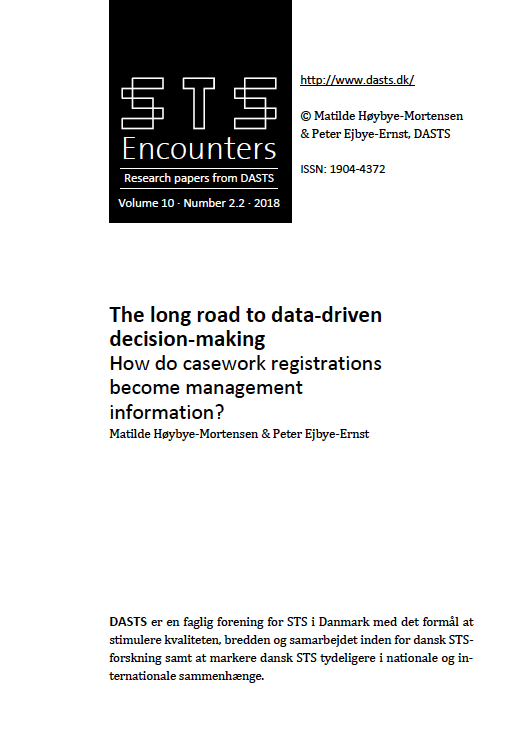The long road to data-driven decision-making
How do casework registrations become management information?
DOI:
https://doi.org/10.7146/stse.v10i2.135241Abstract
The implementation of digital technologies in organisations is often seen as a means by which to ease the administrative burden, create transparency, and to provide for better management information. Based on in-depth interviews with social workers, admin staff, and managers from eleven Danish municipal disability offices, this paper shows the nuances of the perceptions and ambitions to make management and welfare organisations data-driven. The article maps the infrastructures making management information possible. When social workers insert data in digital case management systems (CMS) on clients, services, and service costs, it becomes possible to extract this data and use it as management information. However, achieving this requires much more than a few clicks of a mouse. In fact, there is quite a lot of invisible work performed by the admin staff. The paper demonstrates how information on cost data and case overview travels and transforms within an organisational hierarchy. The analysis shows that the human impact is not out of the equation, even though some performance information is automatically aggregated. Performance information is indeed a result of cooperation between man and machine. Seeing as information is not a neutral raw material to be easily transported challenges the belief in data-driven organisations as a pure technical matter.

Downloads
Published
How to Cite
Issue
Section
License

This work is licensed under a Creative Commons Attribution-NonCommercial-ShareAlike 4.0 International License.
Starting with volume 15, articles published in STS Encounters are licensed under Attribution-NonCommercial-ShareAlike 4.0 International (CC BY-NC-SA 4.0). The editorial board may accept other Creative Commons licenses for individual articles, if required by funding bodies e.g. the European Research Council. Previous articles are not licensed under Creative Commons. In these volumes, all rights are reserved to the authors of the articles respectively.




